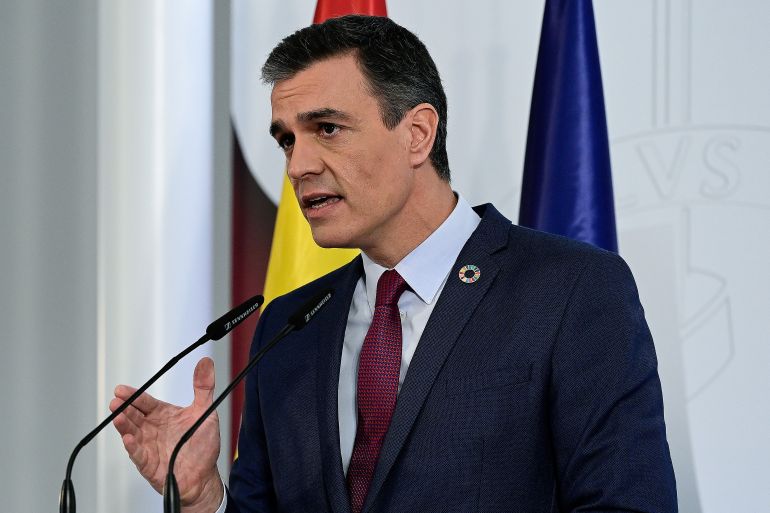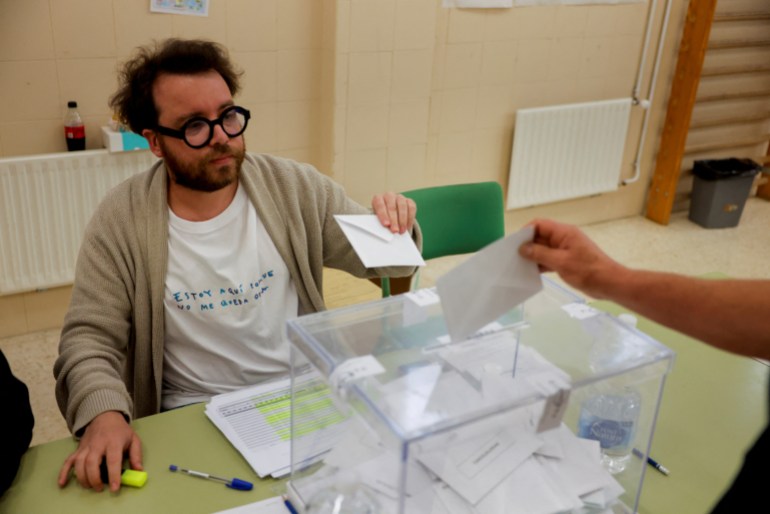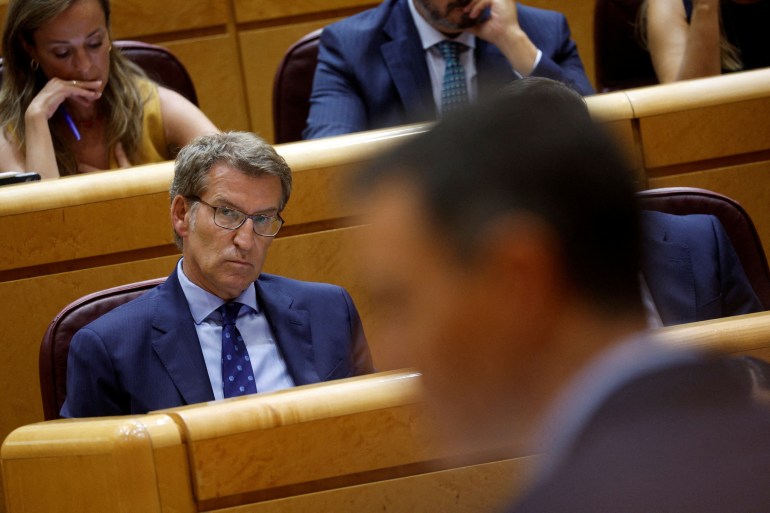Spanish PM Pedro Sanchez calls early election for July 23
Prime minister says he will dissolve parliament after his party performed poorly in local and regional polls.

Pedro Sanchez, Spain’s prime minister, has called an early general election for July 23 after his party suffered a significant setback in local and regional polls.
In a televised address to the nation on Monday, Sanchez said he had informed King Felipe VI of his decision to dissolve parliament.
Keep reading
list of 3 itemsWill Spain’s new position on Western Sahara make a difference?
Hundreds of people evacuated as wildfire rages in western Spain
It came a day after his Spanish Socialist Workers’ Party (PSOE) and its junior ally, Podemos, lost ground in the elections while its rivals, the conservative People’s Party (PP) and far-right Vox party outperformed.
“I took the decision when looking at the results of the elections of yesterday,” Sanchez said.
“Although yesterday’s elections had a local and regional scope, the meaning of the vote conveys a message that goes beyond that,” he said. “That is why, as both prime minister and PSOE’s secretary general, I personally assume the results.”
Sanchez had previously said he would complete his four-year term.
The regional polls were widely seen as a dress rehearsal for a general election that was expected to occur at the end of the year.

People’s Party leader Alberto Nunez Feijoo welcomed the announcement and asked voters to give his party a “clear majority”.
“The sooner [the election], the better,” Feijoo said at a news conference.
He said the first step to unseat Sanchez was the PP’s strong showing in the local and regional elections, a result he said “Sanchez wants to go unnoticed” with the news of the election.
“Spaniards have said, ‘Enough. We’ve had it up to here,'” he added.
In the municipal polls, the PP won 31.5 percent of the votes compared with 28.2 percent for the Socialists, a 1.2 percentage point decrease for PSOE on 2019 but almost a 9-point increase for the conservatives, who benefitted from the collapse of the centrist Citizens party.
The PP won in seven of the 12 regions contested and dominated in several regions previously won by PSOE, including Valencia, Aragon and La Rioja.
The PP’s local leader Isabel Diaz Ayuso won a majority in the Madrid region.
In big cities such as Valencia and Seville, the votes also favoured the PP.
Barcelona was an outlier among the large cities with a pro-independence party winning, but its narrow margin of victory means it will need an agreement with the Socialists to unseat the current mayor, far-left Ada Colau.
Earlier on Monday, Feijoo said, “We have won a clear victory, and Spain has taken the first steps towards a new political era.”

But even with its success, the PP will be able to govern only several regions with the support of the Vox party, which poses an obstacle to Feijoo.
Spain’s regional governments have enormous power and budgetary discretion over education, health, housing and policing.
The PP leader has looked to moderate the party’s line while keeping the Vox party at a distance with an aim to conquer the centre.
Vox leader Santiago Abascal said in a speech early on Monday, “Vox is here to stay and is here to be decisive in the construction of the alternative Spain needs.”
The new election will come shortly after Spain takes over the rotating European Union presidency on July 1.
Sanchez, who has been in office since 2018, has faced several obstacles during his rule, including voter fatigue, soaring inflation and falling purchasing power in the eurozone’s fourth-largest economy.
He has struggled to contain the fallout from repeated crises between the Socialists and their hard-left coalition partner, Podemos.